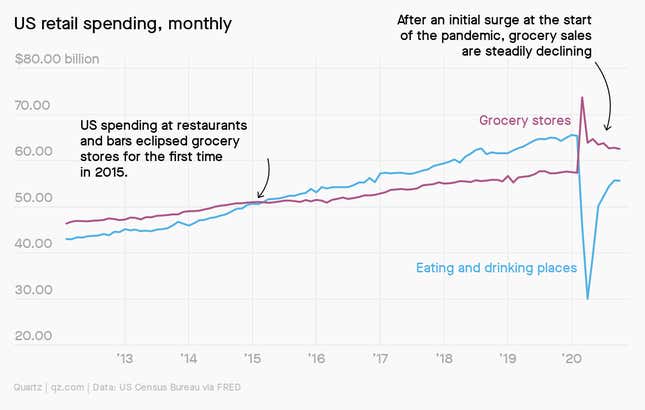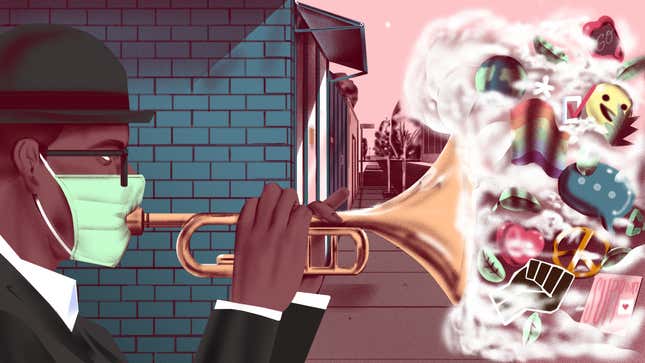Good morning, Quartz readers!
Here’s what you need to know
New data show the Pfizer/BioNTech vaccine has 94% efficacy for over 65s. Alongside US company Moderna, Pfizer and BioNTech will apply for regulatory approval as soon as possible. Meanwhile, Sinovac Biotech’s vaccine, one of China’s top contenders, produced lower levels of antibodies than in people who’ve recovered from Covid-19, preliminary results show.
Republican lawmakers don’t want the US to go at China alone. In a Senate Foreign Relations Committee report, they called for a tighter partnership with Europe, the UN, and other democracies to put pressure on the Asian giant to play by the rules.
Thailand’s parliament voted to preserve the monarchy. After some of the most violent clashes since the protest movement began, lawmakers rejected its demands to amend the constitution to reduce the king’s powers, though they agreed to some changes.
India will take its time on Boeing’s 737 Max. While the US’s Federal Aviation Administration cleared the plane to fly again after two fatal crashes that killed 346 people, Indian authorities say they will study the situation before making a decision.
Tencent is reportedly investing in Udemy. The Chinese tech firm participated in a funding round that valued the San Francisco-based online education startup at more than $3 billion, Bloomberg reported.
The coronavirus vaccine also-rans
“Even if it’s not the new Viagra, it still can make a considerable amount of money, even if you’re only getting a couple of dollars per dose.” —Christopher Snyder, a professor of economics at Dartmouth College
While Pfizer and Moderna will likely receive government approval first, Snyder—who is a member of Accelerating Health Technologies, a group focused on the financial and economic cases for vaccine development—says there is still money to be made even for the fourth, fifth, or sixth vaccine in line. Reporter Annalisa Merelli explains.
Charting US food spending
Americans are tired of cooking at home. While spending at grocery stores spiked as consumers stocked up for lockdowns earlier in the year, data from the US Census shows several months of steady declines and increased spending at bars and restaurants.

Growing fatigue about food preparation, cooking, and dishwashing has also meant significant growth in sales of meal kits and prepared foods.
Kings and queens

On New Year’s Eve, 1962, a 13-year-old named Valery Saifudinov took the stage with his band at a party in Latvia’s capital city Riga, then still under Soviet control. In front of a crowd of several hundred factory workers, the group launched into covers of songs by artists such as Chuck Berry and Little Richard—Black Americans who, along with forebears like Sister Rosetta Tharpe, created rock ‘n’ roll. The crowd loved it.
By the time of that performance, rock records had been circulating in the Soviet Union, despite authorities restricting them. They feared what the music represented: It was new, dangerous, and rebellious—in a word, cool. In the years that followed, rock music would become so popular debates persist over whether it stoked dissent that helped destabilize the Soviet regime.
Culture is one of America’s most powerful means of exerting its influence in the world, and in ways large and small, Black Americans have shaped that culture. They’ve held an outsized sway on what the US, and consequently much of the globe, deems cool. Read more in our latest field guide to the new meaning of cool.
✦ It may not be as cool as Chuck Berry, but a Quartz membership will always give you the global perspective. Try a seven-day free trial.
We’re obsessed with QR codes
It’s finally hip to be square. After a decade of mockery in the West, QR codes—those little black-and-white square patterns you scan with your phone to pull up a website—are finally having their moment in the pandemic. They’re replacing restaurant menus, enabling contactless payments, and even providing proof that the bearer doesn’t have Covid-19. Of course, these developments aren’t so novel within places like China, where QR codes are a ubiquitous tool for digital payments. Scan the history with the Quartz Weekly Obsession.
Get the Quartz Weekly Obsession delivered to your inbox by signing up below.
Surprising discoveries
New York City’s famous Christmas tree is looking a bit patchy this year. The spruce newly installed at Rockefeller Center drew critiques on social media—but its owl stowaway was a hit.
Delta found a creative loophole for avoiding US tariffs. The airliner flies its new Airbus planes to cities like Amsterdam and Tokyo before they head stateside.
Madagascar is slowly breaking up into smaller islands. A new study found the East African Rift system extends as far as the island nation.
A tiger wandered 3,000 km (1,864 miles) in India. Named Walker by wildlife officials who tracked him with GPS, he eventually settled down in a sanctuary in the western state of Maharashtra.
The young Barack Obama read Foucault and Marcuse to pick up girls. So goes the former US president’s recollection of his college years in his new memoir, A Promised Land.
Our best wishes for a productive day. Please send any news, comments, someone to do the cooking and washing up, and wandering tigers to hi@qz.com. Get the most out of Quartz by downloading our iOS app and becoming a member. Today’s Daily Brief was brought to you by Annalisa Merelli, Karen Ho, Jackie Bischof, Nicolás Rivero, Liz Webber, and Ana Campoy.